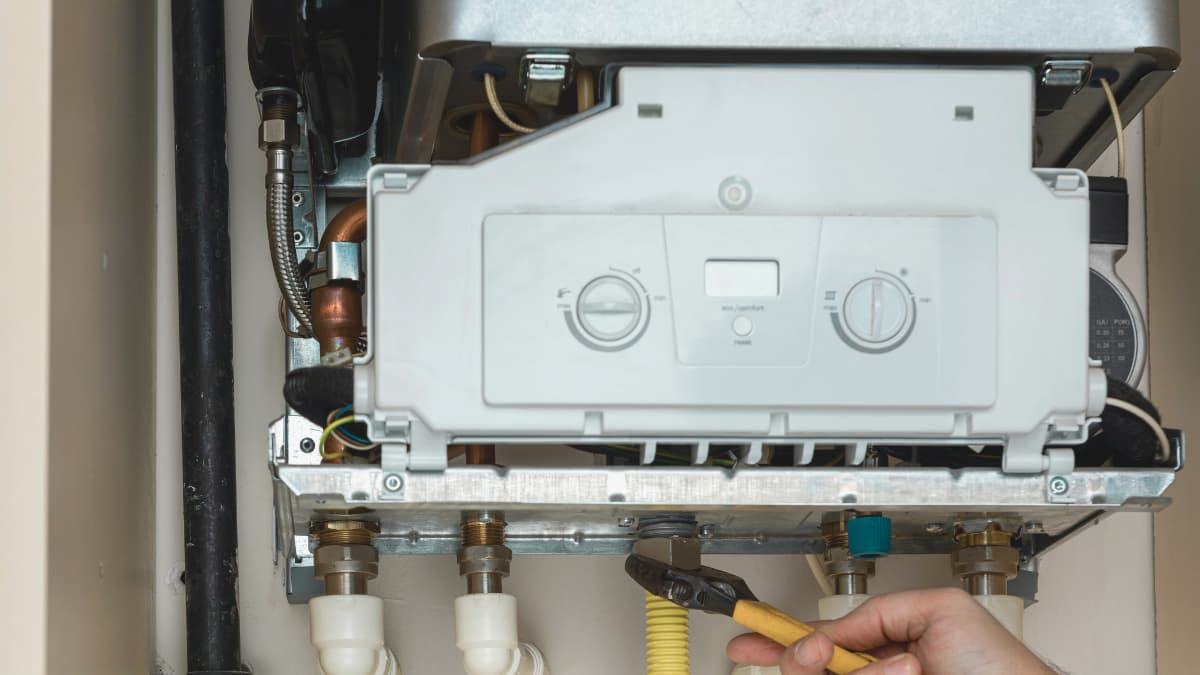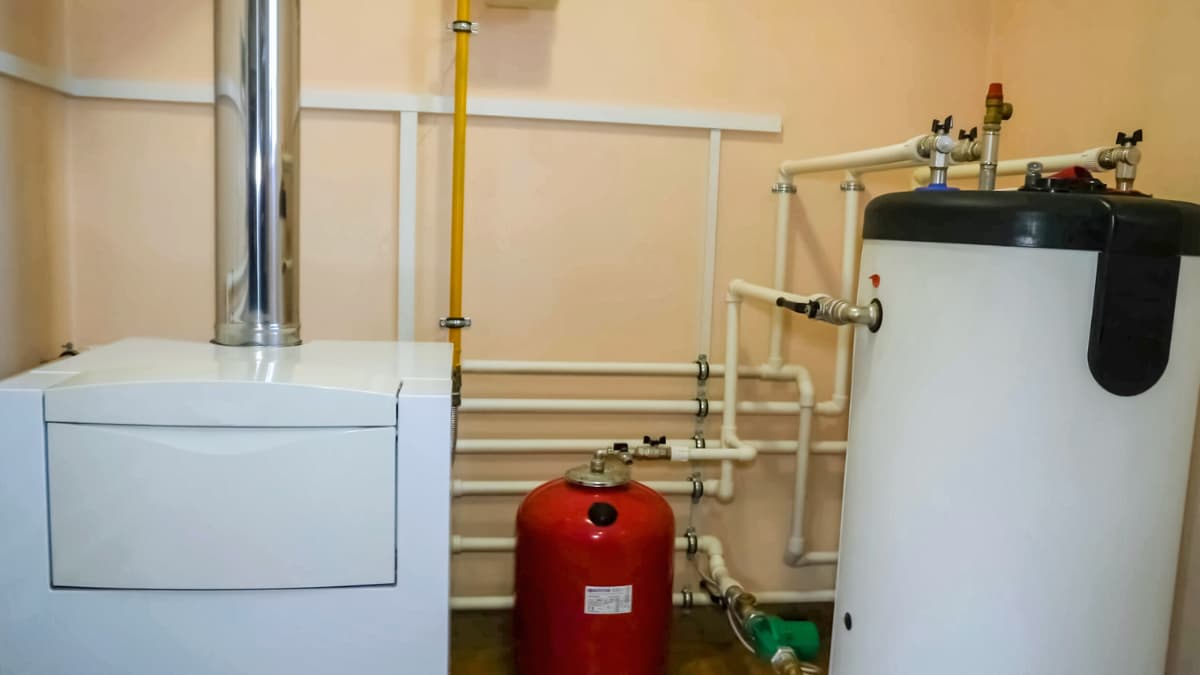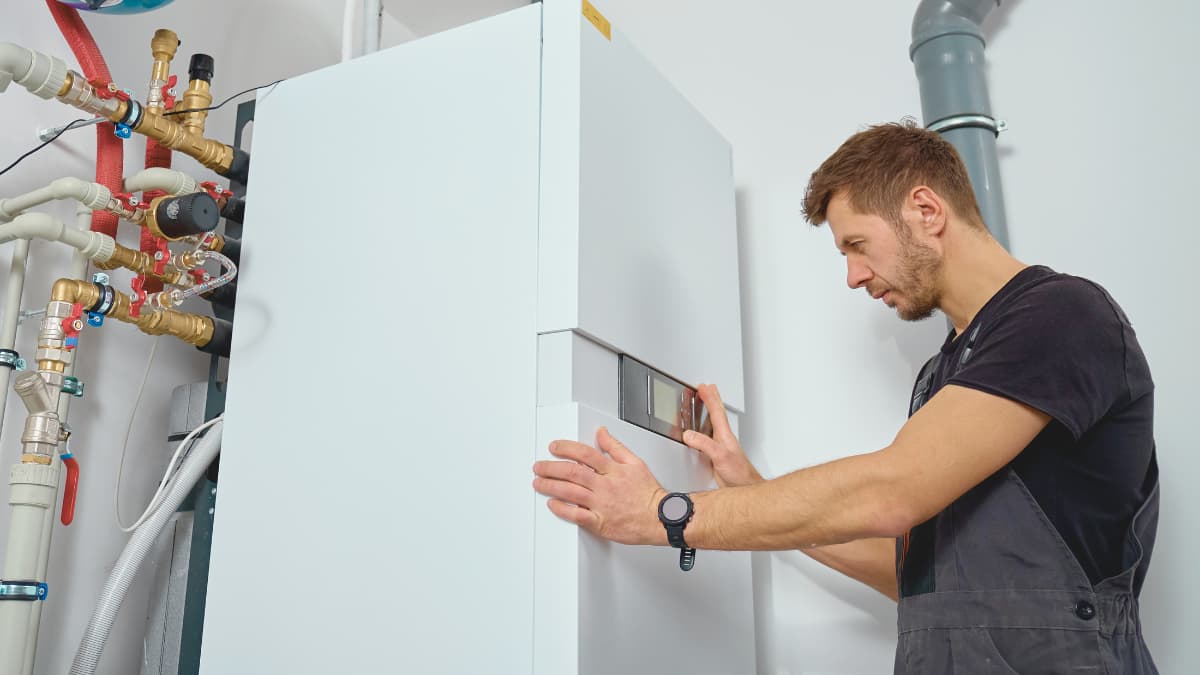Gas safety is not something to take for granted. Whether at home, at work or on-site, the safe operation of gas appliances is essential for protecting people’s health and well-being. Faulty boilers, gas leaks and poor ventilation can all lead to serious risks, including fires, explosions and carbon monoxide poisoning.
That’s why an annual gas safety check is so important. These routine inspections help to identify potential faults before they become dangerous and ensure every appliance is working efficiently and safely. It’s a simple step that can genuinely save lives.
At the heart of every effective safety check is a well-trained professional. When gas engineers are supported with accredited training and up-to-date assessment, they carry out inspections with confidence, accuracy and care. At Staffordshire Training Services, we believe that building this confidence through quality education is the key to raising safety standards across the industry.
Annual Safety Checks
An annual gas safety check is a vital part of keeping homes and workplaces safe. It involves a qualified gas engineer inspecting all gas appliances, pipework, flues and ventilation to ensure everything is working as it should. These checks are not just about ticking boxes; they are about safeguarding lives.
Key appliances such as gas boilers, cookers, fires and meters are thoroughly examined for signs of wear, leaks or unsafe operation. The engineer will also check for adequate ventilation and test that safety devices, such as flame failure controls, are functioning correctly.
Carbon monoxide detection is another essential element of a thorough inspection. Because this odourless, invisible gas can be deadly, engineers ensure that alarms are present, correctly positioned and in working order.
Even appliances that appear to be working perfectly can deteriorate over time. Seals can weaken, vents can become blocked and parts can degrade without obvious signs. Regular checks help catch these issues early and prevent more serious problems from developing.
Signs An Appliance May Be Unsafe
Gas appliances can develop faults that are not always immediately obvious. However, there are a few clear warning signs that something may not be right and should be checked by a qualified gas engineer as soon as possible.
Some of the most common indicators include:
- A yellow or orange flame instead of the usual crisp blue
- Sooty marks or stains around the appliance, particularly near vents
- Pilot lights that keep going out or struggle to stay lit
- Excess condensation on windows or walls near the appliance
These signs suggest incomplete combustion, blocked flues, or poor ventilation, all of which can be dangerous if left unchecked.
It is also important to remember that the absence of symptoms does not guarantee safety. Many gas-related faults, including carbon monoxide leaks, can develop silently and without any visible warning. That’s why an annual safety check by a Gas Safe registered engineer remains the most reliable way to ensure every appliance is operating safely and efficiently.
Legal Responsibilities For Landlords
Landlords in the UK have a legal obligation to ensure the gas safety of their properties. This includes arranging an annual gas safety check for all gas appliances, flues and associated pipework provided within the rental property.
A valid Gas Safety Certificate, also known as a CP12, must be issued following the inspection, and a copy must be given to the tenant within 28 days of the check. For new tenants, this certificate should be provided before they move in.
It is a legal requirement that a Gas Safe registered engineer carries out all checks. This ensures the inspection is completed to the correct standard and that any issues are identified and resolved in line with current regulations.
Fulfilling this duty not only keeps tenants safe but also helps landlords remain compliant with housing and health legislation. Regular checks provide peace of mind and can prevent costly repairs or legal consequences in the future.
Gas Engineers Help Keep People Safe
Gas safety depends on more than just the right tools and equipment; it relies on the expertise and judgement of well-trained professionals. Gas engineers play a crucial role in keeping homes, workplaces and communities safe, often working behind the scenes to prevent serious incidents.
Carrying out a proper gas safety inspection requires a high level of skill and attention to detail. From checking for leaks and testing flue flow to examining appliance seals and ventilation, engineers must follow strict procedures and apply their knowledge with care. Every inspection is an opportunity to protect lives and ensure peace of mind.
As technology and standards evolve, staying current is essential. Regular training and reassessment help engineers maintain their competence and remain informed about the latest safety practices, regulations and equipment. By investing in their professional development, engineers continue to deliver a service that people can trust, and that trust is at the heart of every safe and healthy property.
Being Gas Safe Registered
Being Gas Safe registered is the legal requirement for anyone carrying out gas work in the UK. It proves that an engineer is qualified, competent and authorised to work safely with gas appliances and installations. The Gas Safe Register is the official list of engineers who have met these standards and continue to meet them through regular reassessment.
For members of the public, this registration offers reassurance. Every Gas Safe registered engineer carries an ID card that confirms their registration number, qualifications and the types of work they are certified to carry out. Customers have every right to ask to see this card before any work begins, and responsible engineers will be happy to show it.
Registration is not a one-time achievement. Engineers must keep their certification up to date through ongoing training and formal reassessment. This ensures that their knowledge stays current and their skills remain sharp. At Staffordshire Training Services, we support engineers in maintaining their status with recognised training that builds confidence and reinforces safe working practices.
Training That Builds Confidence
At Staffordshire Training Services, we believe that high standards in gas safety begin with quality training. That’s why we support engineers at every stage of their careers, from those just starting to experienced professionals looking to refresh or advance their skills.
Our accredited courses are designed to meet the real-world demands of the gas industry. From initial assessments to ACS requalification and specialist modules, we provide the knowledge and hands-on experience engineers need to carry out their work safely, accurately and with confidence.
Refresher programmes are also available for those returning to the industry or simply wanting to stay up to date with the latest best practices and regulatory changes. In safety-critical work, staying sharp isn’t optional; it’s essential.
Competence is about doing the job right. Confidence is about knowing you’ve been trained to handle it. At Staffordshire Training Services, we help engineers achieve both.
Staying Safe Starts With A Check
Booking an annual gas safety check is one of the simplest and most effective ways to protect lives and property. Whether you’re a homeowner or a landlord, arranging your inspection in good time each year ensures that faults are caught early and appliances continue to operate safely and efficiently.
It’s a small investment that brings lasting peace of mind. A routine check can prevent costly breakdowns, carbon monoxide leaks, or more serious incidents, all of which can have life-changing consequences if left undetected.
For those looking to take a more active role in gas safety, training as a gas engineer is a valuable and rewarding path. At Staffordshire Training Services, we offer the accredited courses and support needed to gain the skills and certification required to carry out inspections professionally and confidently.
Safe homes and workplaces start with one action: getting the check booked in. The sooner it’s done, the safer everyone will be.
Related Articles
- Ten Tips to Stay Gas Safe at Home
- Training As a Gas Engineer In 2025
- Start Training As a Gas Engineer
- Career as a Gas Engineer
- Is Gas Engineer Career Still Worth It
Prefer an AI Summary?



